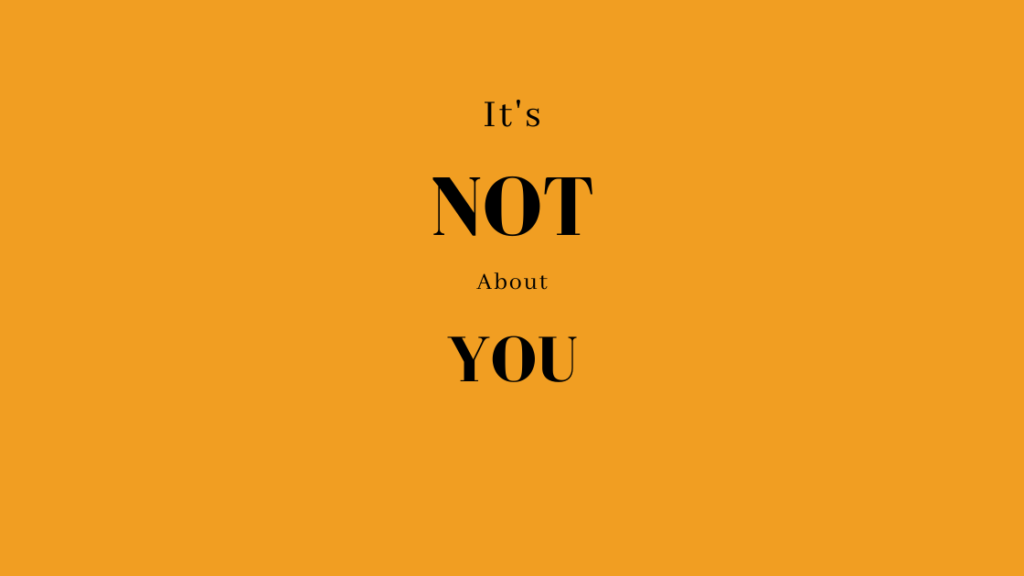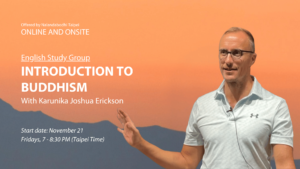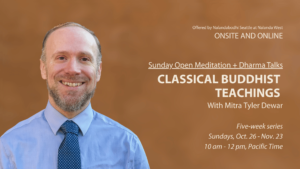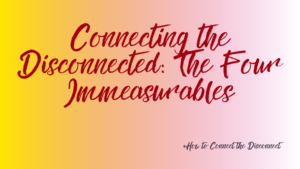Have you ever noticed that the people in your life have different opinions and viewpoints about you? If the “self” or “I” were solid, then how would that be possible? People’s views are merely their own projections, and no two people see things in exactly the same way.
I can now laugh when I remember all those times in my dating life when someone would break up with me saying, “It’s not about you; it’s me.” It used to be really painful to hear this, thinking that something must be wrong with me. What makes me laugh now is that I’ve come to realize that what they said is really true! It’s not “me” those guys were breaking up with; rather, it was their projections about who they thought I was.
This concept has been extremely helpful for me in my personal and professional relationships. I’ve learned that when I am able to get my ego out of the way, I can actually hear what another person is saying or requesting, without the need to defend myself.
For example, when someone criticizes something I did, my habitual tendency, when I’m not mindful, is to immediately defend myself. At those times, when I’m not mindful, my ego rears its head, and I don’t hear the request underlying the criticism. Through mindfulness and discipline, I am now able to let go of my knee-jerk reaction to protect my ego … at least most of the time.
One of the best tools I have found for letting go of the tendency to defend my ego is to slow down and feel the body sensations connected with my emotional response to what I perceive as criticism or judgment. For me, it’s a clenching in my stomach and jaw, and fluttering in my heart. When I am able to slow down without immediately reacting, I take a breath and ask myself what those body sensations are telling me. My body often tells me at those times that I’m feeling hurt and misunderstood.
Practice
Here’s a simple practice for working with difficult emotions that arise when you feel judged or criticized:
- Slow down and feel the body sensations. Dzogchen Ponlop, in his book Emotional Rescue: How to Work with Your Emotions to Transform Hurt and Confusion into Energy that Empowers You, calls this space of feeling “Mindful Gap.”
- In the feeling space of Mindful Gap, look and see what your body sensations are telling you, noticing your habitual responses without reacting. Dzogchen Ponlop calls this “Clear Seeing.”
- Take another deep breath, let go of the tension and relax. In this more relaxed space of what Dzogchen Ponlop calls “Letting go,” you will know the best way to respond (which may be to not respond at all) and relax.
When I’m able to leave my ego at the door, I can breathe into my hurt feelings with self-compassion and let them go. I can then determine what the underlying communication truly is, and respond responsibly. This is the opening into true compassion and connection.

Beth Patterson is a psychotherapist specializing in grief, loss and life transitions. In her work, Beth relies on Buddhist psychology, mindfulness based cognitive therapy and body-centered therapies. Her articles and ebook are available at www.bethspatterson.com. Beth is a longtime Buddhist practitioner and a student of Dzogchen Ponlop Rinpoche.






